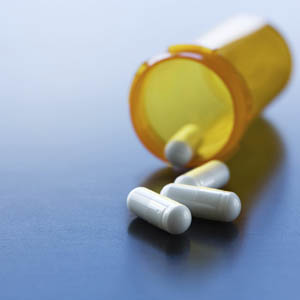 A recent study in Pediatrics found that more than 70,000 children are hospitalized each year due to accidental medication overdoses — and a small number of drugs accounted for 45 percent of the cases.
A recent study in Pediatrics found that more than 70,000 children are hospitalized each year due to accidental medication overdoses — and a small number of drugs accounted for 45 percent of the cases.
This Advisory Board article listed the 12 most common medications linked to overdoses:
- Amlodipine
- Buprenorphine
- Bupropion
- Clonazepam
- Clonidine
- Glipizide
- Glyburide
- Hydrocodone
- Lisinopril
- Lorazepam
- Metoprolol
- Oxycodone
Most of these drugs are used to treat chronic issues, such as depression and diabetes, and can be harmful to children who take them, especially those 2 and under, who are involved in 75 percent of these hospitalizations. Below are six tips you can share with parents for preventing overdoses:
1. Talk to kids about medications. If you take pills daily and have small children, sit down with them and explain why you take the medicine — and why your children are never to take it. Talk about the dangers of the medicine and make sure they know that, just like over-the-counter drugs, they are only used when you’re sick.
2. Don’t let toddlers see you taking medication. While talking to preschoolers or elementary-age kids about not taking medicine may work well, toddlers won’t understand you. Prevent them from being tempted to try your medication by taking it in private wherever possible. If you must take the medicine in front of them, reinforce that it is not candy.
3. Store medicines in a locked cupboard or in another secure place. Prevent children from accidentally finding medication by always keeping it in a safe area. If a locked cupboard isn’t an option, even the top drawer of your dresser may be safe if your children are unable to reach it.
4. Keep track of how many pills you have left. You may not realize that your kids have taken your medicine, so be aware of the amount you have left, either in a blister pack or a bottle, just in case. Immediately question your children if you’re missing pills and suspect they may have taken some.
5. Avoid using pill boxes if you have young children. Though they’re convenient, especially if you take several pills every day, pill boxes are much easier for small fingers to open — and since they have multiple pills, they can prove fatal during an accidental overdose. If you must use a pill box, tape it shut and keep it in a safe place.
6. Never throw unused medication away in an open trash can. Toddlers and young children love to get into the garbage, and seeing a pill bottle may prove to be too tempting to resist. New regulations beginning in October 2014 allow you to dispose of expired medications at hospital pharmacies, so take advantage of this program when possible to protect your family.
These tips can help you speak to patients about safely taking and storing medication.
Interested in learning more about travel nursing? Call us for more information at 800.866.0407 or view today’s job openings.










